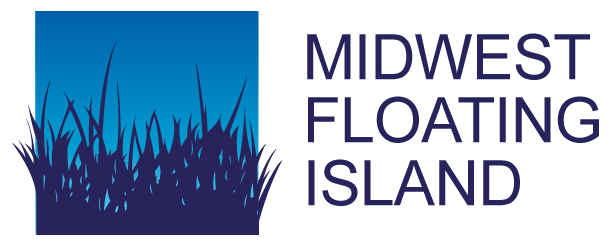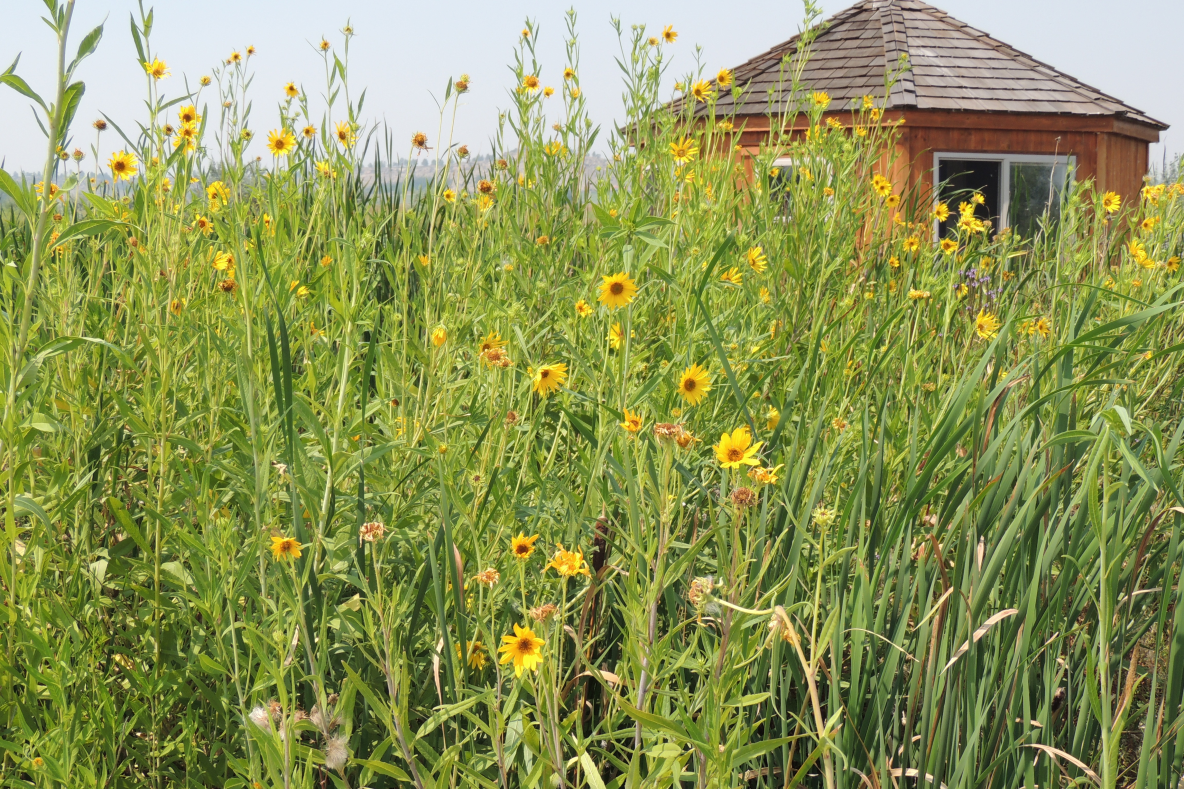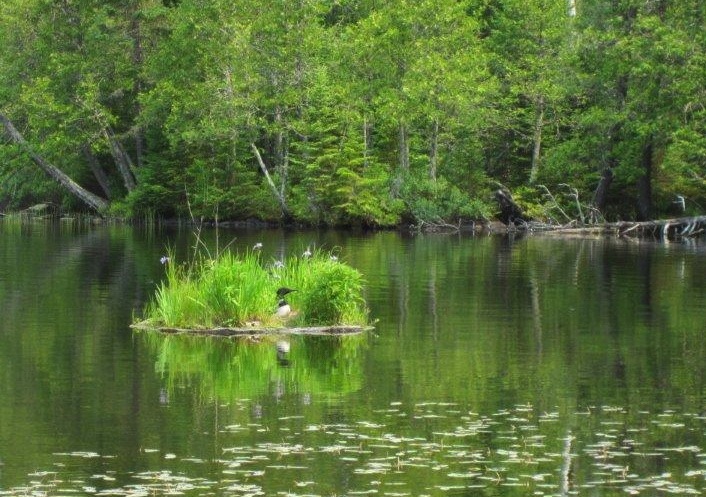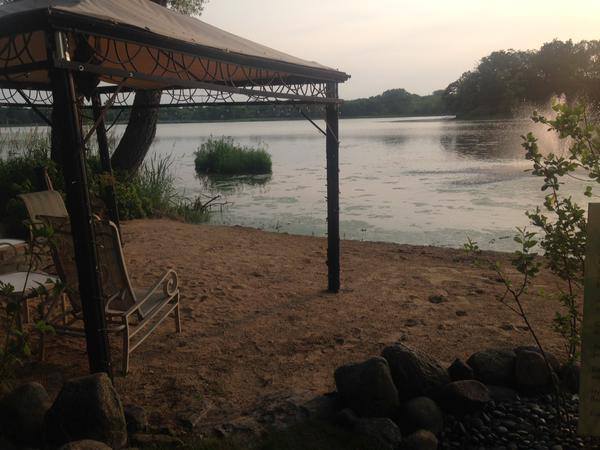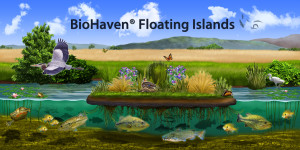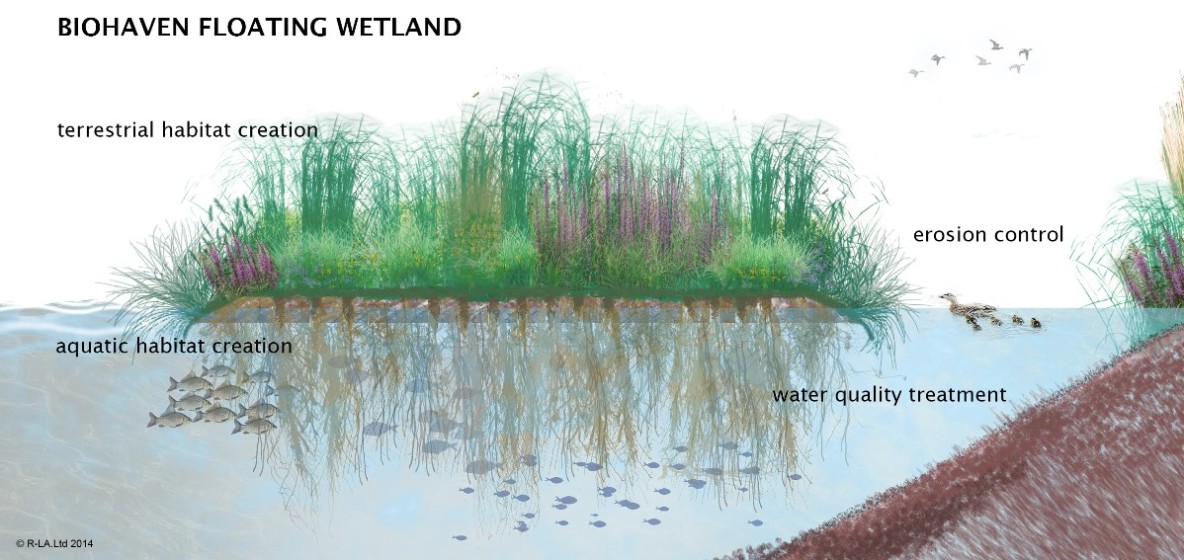During the warm, sunny summer months, lakes and ponds often develop a pale green appearance accompanied by a foul smell. Algae can grow quickly when an excess of nutrients develops in a body of water. Blue-Green algal blooms are dangerous because they create numerous environmental and safety threats. Preventing the blooms is ideal. First, minimize run off of nutrients into … Read More
Phytoremediation to Clean the Water Instead of Chemicals
One of the biggest risks involved in environmental clean-up tasks is the threat of unintended consequences. Often, the addition of synthetic chemicals intended to neutralize or prevent the spread of contaminants results in crucial elements of the biological web being negatively affected, sometimes severely. In almost every case, natural clean-up processes provide a practical way to eliminate the threat of … Read More
An Innovative Home for Loons
Creating a wetland habitat for loons in Minnesota Phyllis Sherman reports that her two BioHaven home for loons in Northern Minnesota are “a great success!” A Star Tribune article recently announced that the Minnesota and Wisconsin Departments of Natural Resources might receive $39 million over a 15-year period that may help the Minnesota state bird-the loon. This money would help lessen … Read More
Seminar with Metro Blooms and Heidi’s Lifestyle Gardens 2015
Please Join our Free Seminar to Learn More about Floating Islands Our program for the evening will include: Brief overview of Metro Blooms programs How man-made floating wetlands make a difference: better water quality, diverse habitat for pollinators and wildlife How to launch a BioHaven® Floating Island with a live demonostration by Heidi herself On-site tour of a variety of … Read More
10 Ways to Keep Your Lake Clean
1. Never dump waste into a storm drain at the side of the road. Storm sewers run directly into streams and lakes. 2. Use fertilizers and pesticides sparingly. Consider native plants that require little fertilizer. 3. Pick up pet waste which is high in nutrients similar to fertilizer and has fecal bacteria. 4. In the winter, use less salt on … Read More
Resurrecting the Food Web
“You don’t clean up water in hopes of resurrecting the food web – you resurrect the food web in order to clean up water”. Bruce Kania What does this mean? “Resurrecting the food web” means to restore bio-complexity to the aquatic environment, starting from the very base of life – microbes. Microbes gather together to form biofilm, which becomes a … Read More
- Page 2 of 2
- 1
- 2
